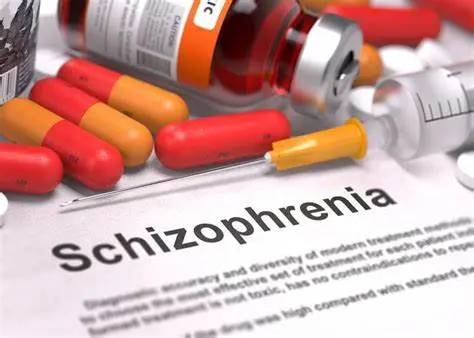Schizophrenia is a complex mental disorder that affects millions of people worldwide. This chronic condition is characterized by a disconnection from reality, with symptoms that include hallucinations, delusions, disorganized thinking, and negative symptoms such as social withdrawal and diminished emotional expression. The road to recovery can be challenging, but with the right treatment and support, many people with schizophrenia can achieve recovery and lead fulfilling and independent lives.
In this blog post, we’ll explore the best treatment options for schizophrenia, discuss the first-line treatment options, and address whether or not this condition can be cured or treated permanently. We’ll also dive into the main medication used to treat schizophrenia.
Can Schizophrenia Be Cured or Treated?
While there is no known cure for schizophrenia, it can be effectively managed and treated with a combination of medication and psychosocial interventions. Early diagnosis and intervention are critical for achieving the best possible outcomes, as this can help to prevent or minimize the severity of symptoms and improve overall functioning. With the right treatment plan in place, many individuals with schizophrenia can lead fulfilling, independent lives.
How to Cure Schizophrenia Permanently
As previously mentioned, there is no known cure for schizophrenia. However, long-term management and treatment can help to reduce the severity and frequency of symptoms, and improve overall functioning. It is essential for individuals with schizophrenia to work closely with their healthcare providers to develop a personalized treatment plan that addresses their unique needs and goals.
Cognitive behavioral therapy
Cognitive behavioral therapy (CBT) is an evidence-based treatment for schizophrenia. Rather, this treatment focuses on changing negative patterns of thinking and behavior. CBT for schizophrenia typically involves:
- Identifying and overcoming delusional beliefs
- Developing strategies for coping with hallucinations
- Improving problem-solving skills
- Improving social functioning
- Managing stress and anxiety
- Relapse prevention
This type of therapy for schizophrenia is usually done weekly for several months. The therapist works with the patient to set goals and develop strategies. Many people with schizophrenia find CBT helpful in managing their symptoms.
Cognitive remediation
Cognitive remediation aims to improve cognitive functioning in people with schizophrenia. It aims to overcome difficulties with:
- Attention and concentration
- Memory
- Speed of information processing
- Problem-solving
- Social cognition
Various techniques are used for cognitive remediation:
- Computerized exercises
- Strategic coaching
- Group sessions
- Real-world practice
This schizophrenia treatment plan can help people with schizophrenia improve their daily functioning. They can do better at work or school and independently manage their lives.
Psychoeducation
Psychoeducation is an essential component of schizophrenia treatment. It involves educating patients and their families about the following issues:
- The nature of schizophrenia
- Treatment options
- Early warning signs of relapse
- Coping strategies
- The importance of medication adherence
- Support services available
Psychoeducation can be provided individually, in groups, or as part of family meetings. It enables patients and their loved ones to participate in treatment actively. Such therapies for schizophrenia can improve treatment adherence and outcomes.
The Best Treatment for Schizophrenia
The best treatment for schizophrenia involves a combination of medication, psychosocial interventions, and support from family, friends, and mental health professionals. This comprehensive approach helps individuals with schizophrenia manage their symptoms, develop coping strategies, and maintain a high quality of life.
Antipsychotic medications are the cornerstone of schizophrenia treatment, with atypical antipsychotics being the preferred first-line option. However, it is important to remember that each person with schizophrenia may respond differently to various medications. Therefore, finding the right medication and dosage may require some trial and error, and close monitoring by healthcare providers. Additionally, long-acting antipsychotic medications that do not need to be taken daily and can instead be administered on a monthly basis may be recommended to help ensure that individuals are receiving the correct dosage of medications.
In addition to medication, psychosocial interventions play a critical role in the treatment of schizophrenia. Cognitive-behavioral therapy, family therapy, and social skills training can help individuals with schizophrenia develop the skills they need to manage their condition, build healthy relationships, and achieve their goals.
Main Medication Used to Treat Schizophrenia
The main drugs used to treat schizophrenia are antipsychotic medications, which include both first-generation (typical) and second-generation (atypical) options. Some common atypical antipsychotics include risperidone, olanzapine, quetiapine, aripiprazole, and lurasidone.
These medications are generally preferred over first-generation antipsych otics due to their lower risk of side effects. However, the choice of medication ultimately depends on an individual’s unique symptoms, medical history, and response to treatment.
It is important to note that while antipsychotic medications can effectively manage the positive symptoms of schizophrenia, such as hallucinations and delusions, they may be less effective in addressing negative symptoms and cognitive impairments associated with this condition. As a result, a combination of medication and psychosocial interventions is crucial for achieving the best possible outcomes.
Conclusion
In conclusion, the best treatment for schizophrenia involves a combination of medication and psychosocial interventions. Atypical antipsychotic medications are typically the first-line treatment option, but finding the right medication and dosage may require some trial and error. Psychosocial interventions, such as cognitive-behavioral therapy, family therapy, and social skills training, play a crucial role in helping individuals with schizophrenia develop the skills they need to manage their condition and improve their overall quality of life.
Amae Health Clinic is here to help you
Are you or a loved one struggling with schizophrenia? Don’t face this journey alone. At Amae Health Clinic, our team of compassionate and experienced mental health professionals is dedicated to providing comprehensive and personalized care for individuals living with schizophrenia. We understand the challenges that come with managing this complex condition and are committed to helping you regain control of your life.
Don’t wait another day to seek the support and guidance you deserve. Visit Amae Health Clinic and take the first step towards a brighter, more fulfilling future. Together, we can help you navigate the challenges of schizophrenia and empower you to achieve your goals.

